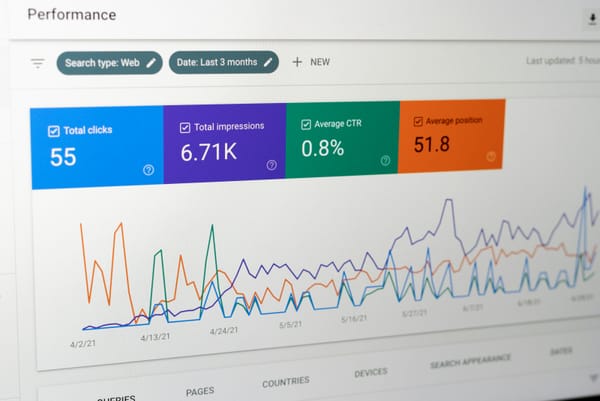Why Your Website Needs to Be Indexed by Google

Introduction to Google's Indexing Process
Google's indexing process is a critical component of the search engine's ability to provide relevant search results to users. It involves crawling the web to discover new and updated content, which is then added to Google's index. This index is a massive database that Google uses to understand the content of web pages and to rank them in search results. The indexing process is not just about finding new pages; it's also about updating the information in the index when web pages change.
Importance of Being Indexed for SEO
Being indexed by Google is crucial for Search Engine Optimization (SEO) because it determines whether your website appears in search results. According to Google, there are over 2.5 billion searches conducted daily, and the visibility of your website in these search results can significantly impact your business.
- Increased Visibility: Being indexed means your website is visible to potential customers who are searching for products, services, or information similar to what you offer. This increased visibility can lead to more traffic to your website.
- Improved Reputation: When your website is indexed, it signals to potential customers that your business is legitimate and operational. This can enhance your reputation and trustworthiness.
- Higher Conversion Rates: With more traffic, there's a higher chance of converting visitors into customers. A study by Moz found that websites that rank in the top 10 for their keywords see 4.5 times more traffic than those that don't.
Common Reasons Why Websites Are Not Indexed
There are several reasons why a website might not be indexed by Google. Understanding these reasons can help you take steps to ensure your website gets indexed.
- Robots.txt Blocking: The robots.txt file tells search engines which pages or sections of your site to crawl or not to crawl. If your robots.txt file is incorrectly configured, it might block Google from indexing your site.
- Noindex Meta Tag: The noindex meta tag tells search engines not to index a page. If this tag is present on your homepage or important pages, Google will not index them.
- Sitemap Issues: A sitemap helps search engines discover your site's content. If your sitemap is missing, incomplete, or not submitted to Google, it can prevent your site from being indexed.
- Content Quality: Google prioritizes high-quality, relevant content. If your site's content is low-quality, irrelevant, or duplicated across the web, it might not be indexed.
- Site Speed: Google considers site speed as a ranking factor. If your site is slow to load, it might not be indexed.
Step-by-Step Guidelines to Ensure Your Website is Indexed by Google
- Check Your Robots.txt File: Ensure that your robots.txt file is correctly configured to allow Google to crawl your site. You can use tools like Google's Search Console to check for any issues.
- Remove Noindex Meta Tags: If you find noindex meta tags on your important pages, remove them to allow Google to index those pages.
- Create and Submit a Sitemap: Make sure you have a sitemap that includes all the important pages of your site and submit it to Google through the Search Console.
- Improve Your Content Quality: Focus on creating high-quality, relevant content that provides value to your visitors. This includes using keywords strategically, ensuring your content is well-written, and avoiding duplicate content.
- Optimize Your Site Speed: Use tools like Google PageSpeed Insights to identify and fix any issues that might be slowing down your site.
The Role of Google Search Console and Its Importance for Website Owners
Google Search Console, formerly known as Google Webmaster Tools, is a free service offered by Google that helps website owners monitor, maintain, and troubleshoot their presence in Google Search results. It provides insights into how Google views your site and offers tools to improve your search performance.
Why Website Owners Use Google Search Console
- Index Status and Coverage: Google Search Console allows website owners to see which pages of their site are indexed by Google and how many pages are indexed. This visibility is crucial for understanding the scope of your site's presence in Google's index.
- Crawl Errors and Issues: The tool provides detailed reports on crawl errors, such as 404 errors, which can prevent your site from being indexed properly. Identifying and fixing these issues is essential for maintaining a healthy search presence.
- Sitemap Submission: Google Search Console simplifies the process of submitting your sitemap to Google. A sitemap is a file that lists the URLs for a site, allowing Google to more intelligently crawl your site. Submitting a sitemap ensures that Google can find and index all the pages on your site.
- Mobile Usability Reports: Website owners can use Google Search Console to check how Google views their site on mobile devices. This is important because Google uses mobile-first indexing, meaning it primarily uses the mobile version of your site for indexing and ranking.
- Performance Insights: Google Search Console offers performance insights, including how long it takes for your pages to load and how your site's mobile-friendliness is perceived by Google. Improving these metrics can enhance your site's search rankings.
- Security and Privacy: The tool provides information on any security issues detected on your site, such as malware or hacked content. It also offers guidance on how to resolve these issues to maintain a secure and trustworthy online presence.
- Search Analytics: Google Search Console offers search analytics, showing you how often your site appears in Google search results, which queries lead users to your site, and how users interact with your site from search results. This data is invaluable for understanding your site's search performance and making informed decisions to improve it.
Conclusion
Being indexed by Google is essential for any business looking to increase its online visibility and reach potential customers. By understanding Google's indexing process and ensuring your website is properly configured for indexing, you can improve your SEO and increase your website's traffic, page views, and revenue.

